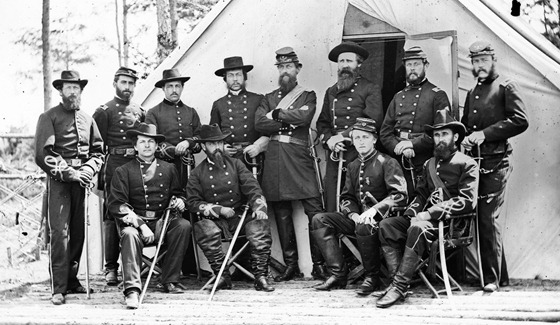Camp 103d Illinois Infantry, Jackson, Tenn.,
February 7, ’63.
There was a dose of medicine administered to the command in this district yesterday that will certainly be productive of good. I already feel that it has indued me with fresh vigor and really made me quite young again. “The sale or introduction of the Chicago Times in this district is hereby forbidden until further orders.” By order of Brig. Gen’l. J. C. Sullivan. That same d__d old skeesicks has been protecting secesh property here in the strictest manner, and I’d never thought it possible for him to do as good a thing. It will do an immensity of good to the army, and if the President will only suppress the paper and several others of the same stripe, and hang about 200 prominent copperhead scoundrels in the North, we may then hope that the army will once more be something like its former self. Just as true as there is a God, if I was provost marshal in Fulton County, with my company for a guard, I’d hang at least ten men whose names I have. I know I’d be wrong, and would have no right to do so, but the good I’d do the Union troops would amply repay me for getting my own neck stretched. You can’t imagine how much harm those traitors are doing, not only with their papers, but they are writing letters to the boys which would discourage the most loyal of men, if they failed to demoralize them. I believe that about every enlisted man in our regiment has received one or more of these letters. My boys have shown me a number from their friends, all of which would help to make a man who relied on his friends for his ideas, discontented. I assure you that it is by no means the lightest portion of an officer’s duties now, to counteract the effect of these letters. I know that I put in a great deal more of my time than I wish to, in talking patriotism at the boys and doing good, round, solid cursing at the home cowardly vipers, who are disgracing the genus, man, by their conduct. I have the satisfaction of knowing that expressing myself on the subject as I have, and Lieutenant Dorrance’s talking the same way, have had a good effect on our men, for not only have we had no deserters, but the copperhead letters received in our company have been answered as patriots and soldiers should answer them.











